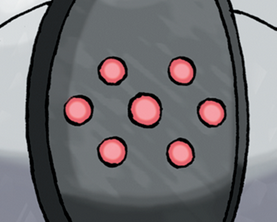Justice de Moraes is censoring critics and jailing opponents with no political check.
Mary Anastasia O’Grady
Wall Street Journal
August 11, 2025
Liberty in the Americas faces a degree of peril not seen since the Cold War. The biggest risk isn’t, as it was in the 1970s and ’80s, the sudden seizure of power by the military. Twenty-first century strongmen are copying Hugo Chávez, who consolidated his rule by seizing control of democratic institutions while he was popular and then put his opponents in jail or drove them into exile.
El Salvador’s President Nayib Bukele has fashioned his own version of chavismo. He fired and replaced all members of the country’s highest constitutional court in 2021. Due process, free speech and freedom of assembly are no more. Mr. Bukele now controls the electoral tribunal. In 2024 it certified congressional elections, although they were marred by irregularities and lacked transparency. Last month Congress, under a long shadow of doubt about its legitimacy, changed the constitution to allow indefinite presidential re-election. RIP Salvadoran democracy.
It isn’t too late to rescue Brazil from a similar return to dictatorship. Recent developments offer hope that a gradual power grab, six years in the making, might be reversed.
The trouble in Brasilia started in 2019 when the Supreme Court claimed it was the victim of slander and threats and invoked an internal rule giving it the power to open secret “inquiries” into alleged crimes against its members. First it launched the “fake news inquiry,” making itself the initiator, investigator and judge. This was a violation of the constitutional rights of Brazilians, who are entitled to have their criminal cases tried in local and state courts, with charges brought by local and state prosecutors.
Justice Alexandre de Moraes, who had a reputation for his opposition to then-President Jair Bolsonaro, was handpicked by then-Chief Justice José Antonio Dias Toffoli to handle the inquiry even though justices are supposed to be assigned at random. Investigators surveilled the social-media accounts of the politically incorrect, criminalized their opinions and jailed them pre-emptively. Some legal scholars complained that the court was violating impartiality, free speech and the adversarial system of justice. But the Senate shirked its duty to discipline the court.
The Supreme Court’s March 2021 decision to annul former President Luiz Inácio “Lula” da Silva’s 2017 corruption conviction, which had been upheld twice on appeal, further inflamed the Brazilian right. The deplorables took to social media. The court tried to shut them up, but some popular opinion-makers were outside the country and beyond the reach of the justices. So in July 2021 they launched a “digital militia inquiry,” targeting tech companies and their platforms. It forced them to censor content and demonetize Brazilians who held opinions that the court found unacceptable. Failure to comply meant the companies could no longer operate in Brazil.
Justice de Moraes also headed the Supreme Electoral Tribunal during the 2022 presidential campaign, which pitted Mr. da Silva against the incumbent Mr. Bolsonaro. The justice made the tribunal notably more political than it had been by actively monitoring the speech of parties, candidates and citizens and censoring those with whom he disagreed.
When Mr. da Silva was declared the winner of the election, the bitter polarization escalated. Some supporters of Mr. Bolsonaro refused to accept the results. They wanted the military to intervene and for months staged peaceful protests in front of barracks around the country.
Mr. da Silva was inaugurated without incident on Jan. 1, 2023. But a week later a contingent of bolsonaristas marched on federal buildings in Brasilia. Some people got inside, where there was violence and vandalism. The court called it an attempted coup. But most of those involved seemed to be yahoos in tennis shoes wandering the grounds without weapons. Not a single soldier left military installations.
Justice de Moraes launched three new secret inquiries. Around 1,500 suspects were rounded up and some kept in prison for up to a year awaiting trial. Some were hit with severe sentences for minor transgressions. In a country where violence from the left is met with understanding, the punishments seemed in many cases unduly harsh. The court alleged a conspiracy and initiated investigations aimed at uncovering misinformation spread by intellectual authors and instigators of the Jan. 8 riot. Mr. Bolsonaro and his inner circle still face trials for allegedly plotting a coup.
No matter what you think of Mr. Bolsonaro, it’s clear that politics have taken over the court. The right in the Brazilian Senate is trying to marshal the votes necessary to impeach Justice de Moraes and restore judicial impartiality. Elites are starting to complain about justices drunk on power. Unfortunately President Trump’s 50% tariffs on Brazilian imports have boosted nationalism and support for Mr. da Silva. But the U.S. Treasury’s decision last month to impose sanctions on Mr. de Moraes seems to have gotten the attention of the other members of the court, who undoubtedly understand that there could be more to come if Brazil fails to find a way to restore the rule of law.
O post A Supreme Court Coup d’Etat in Brazil apareceu primeiro em DefesaNet.
